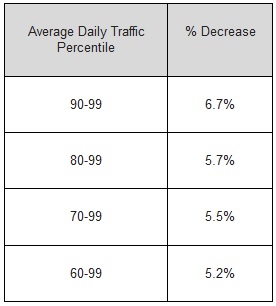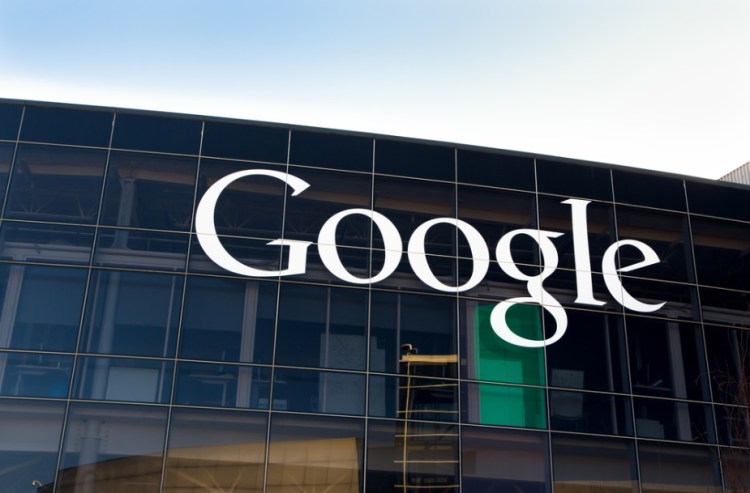By now, it’s likely everyone has heard of Mobilegeddon. The doom-ridden algorithm update from Google that promised to severely punish mobile search rankings for websites not optimized for mobile never seemed to deliver the promised impact. But how bad was it? In an analysis of HubSpot’s 15,000 customers, we found websites specifically not prepared for mobile had organic traffic decline almost 5 percent.
While 5 percent may not have you jumping out of your chair, for a small business putting significant effort towards growing its inbound marketing efforts, that’s a significant setback. Most likely, that 5 percent is predominantly mobile users who are hoping to do or find something specific — an ideal audience to convert into prospects for your business.
Before diving into some takeaways from the data, here is more information about our analysis:
- Websites in this analysis specifically have 1 – 450,000 visits per month
- The mean traffic for websites in this analysis is 15,184 visits per month
- Each of the websites in this analysis did not pass the Google mobile-friendly test
- Industries represented in this study are across marketing services, manufacturing, medical, ecommerce, software, and more.
- The time frame for this analysis runs one week before the roll out of Google’s mobile algorithm through early June.
Most affected websites were impacted equally
As Google webmaster analysts mentioned before the mobile algorithm was released, search queries globally are affected, and it seems that the loss in traffic is nearly equal across all of the websites we looked at. The mean website daily traffic between March 1 and April 18 was 509 daily visits, while the mean daily traffic after Mobilegeddon was 485.
 Unlike some reports I’ve read, it appears many sites were immediately impacted by the Mobilegeddon algorithm. Starting on April 21, you can see a sharp decline in organic traffic over a three-week period. It’s likely the algorithm was still being fully rolled out during that first week and that’s why we see a continued decline.
Unlike some reports I’ve read, it appears many sites were immediately impacted by the Mobilegeddon algorithm. Starting on April 21, you can see a sharp decline in organic traffic over a three-week period. It’s likely the algorithm was still being fully rolled out during that first week and that’s why we see a continued decline.
However, when we look at the traffic percentile of sites in our analysis there is a difference in the impact (see table at right).
The longer you wait, the harder it will be to recover your search rank
If you have already noticed less organic traffic as a result of this update, it’s likely you have also lost some search ranking to other content that is on a site that is mobile-friendly. The longer you wait to make your website mobile-friendly, the more competitive content will be produced, making it more difficult to regain your original ranking.
In Mobilegeddon Hits and Misses, there is data showing how major webites such as Last.fm, Cars.com, and Autotrader experienced significant impact from the algorithm. For Last.fm, according to SEM Rush data, no pages are mobile-friendly, and the company lost more than 13,000 of its mobile top three rankings from April 26 through May 25. Cars.com has 52 percent of its URLs mobile-friendly, but the remaining 48 percent of URLs that do not appear mobile-friendly resulted in a loss of 29 percent of the company’s top three smartphone keywords.
Visitors are demanding a (good) mobile experience
In fact, according to a report from Forrester and Akamai, 62 percent of online visitors expect a mobile-friendly experience. If you’re not delivering a good experience to them, they will likely not come back.
One consideration in looking at becoming mobile-friendly is your CMS. If you’re not already using a CMS that helps deliver a mobile-friendly experience, consider evaluating one. Or, look into themes available on your CMS for the possibility of making your existing website mobile.
Google recommends using responsive design, as it simplifies the URLs shared and helps their crawlers effectively index an entire website.
In addition, look at your landing pages and consider the technology you’re using to power those. Because Google’s new algorithm works on the page level, it’s worthwhile to ensure your top 15-20 landing pages are mobile-friendly to keep your inbound marketing efforts growing.
Have you felt the impact of Mobilegeddon? Let me know in the comments.
Dharmesh Shah is cofounder and Chief Technology Officer of marketing and sales software company HubSpot.


